April 29, 2022
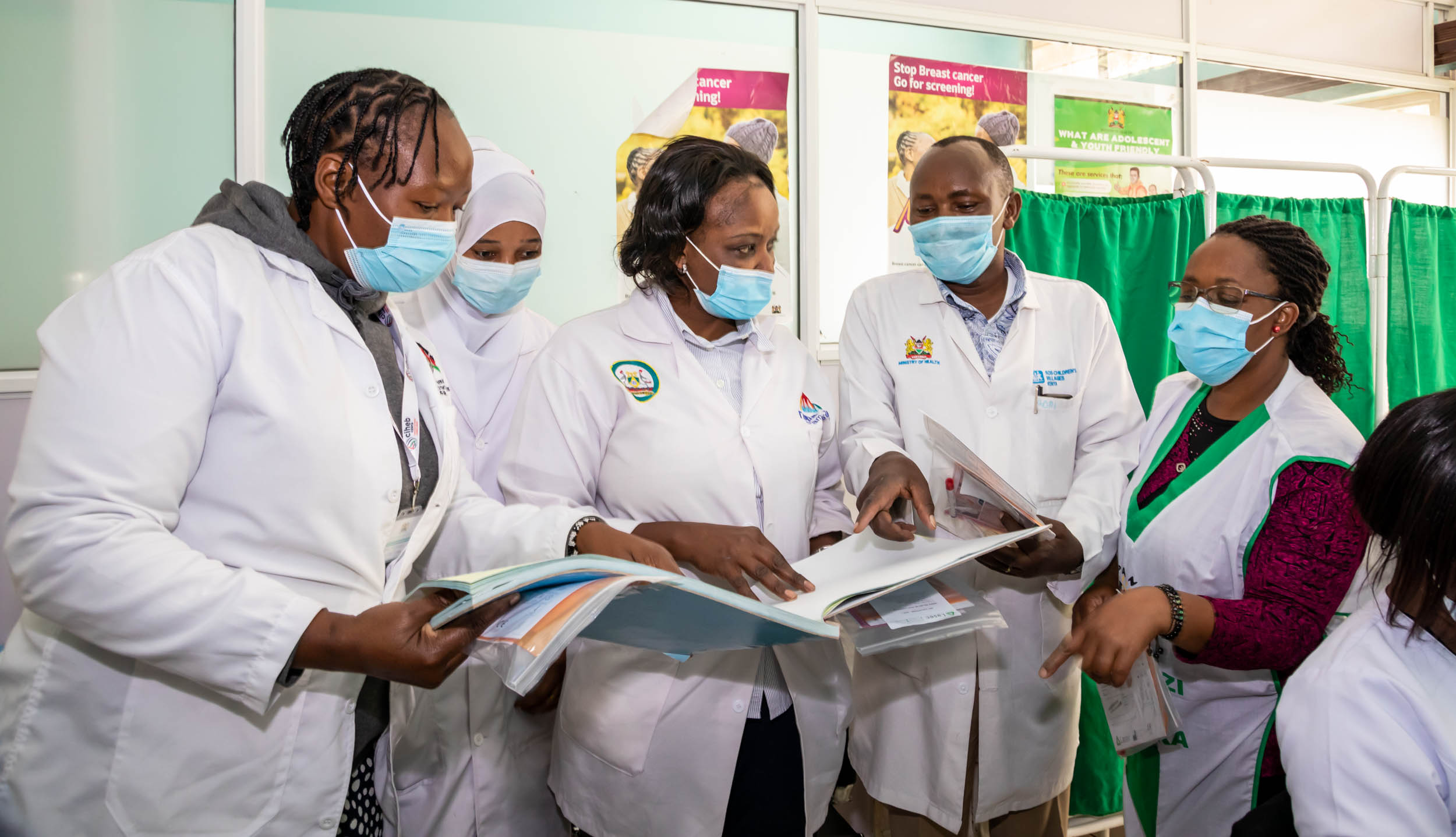
Cervical cancer is preventable, yet it remains the second most common cancer and the leading cause of cancer death in Kenyan women. Women living with HIV (WLWH) are at a much higher risk of developing cervical cancer, which progresses much faster in HIV-positive people due to their compromised immune status. Despite this risk, WLWH have much lower screening rates for cervical cancer than women without HIV.
CIHEB-Kenya has sought to address the gap in access to this critical service in Nairobi County through its recently ended Partnership for Advanced Care and Treatment (PACT) Endeleza program funded by the United States President’s Emergency Plan for AIDS Relief (PEPFAR) through the Center for Disease Control and Prevention (CDC). The program’s work now continues in the newly awarded County Ownership and Networks to maintain Nairobi epidemic control (CONNECT) program. CONNECT works with the Ministry of Health, the National Cancer Control Program (NCCP), and the Nairobi Metropolitan Service (NMS) to fast-track progress towards the UNAIDS 95-95-95 targets of HIV epidemic control and to reduce HIV incidence and AIDS-related mortality as articulated in the Kenya AIDS Strategic Framework II.
New Treatment Methods
Lesions are an abnormality in the cells of the cervix that could eventually develop into cervical cancer. These lesions, when detected early, can be managed appropriately preventing their advancement to cancer.
CONNECT program has introduced a new treatment using thermal ablation, a procedure that uses heat to destroy the abnormal tissue or destroy its function. This is easy and simple to use as an alternative to cryotherapy, the use of extreme cold to freeze and remove abnormal tissue, previously used. Cryotherapy has much higher maintenance costs, such as procuring and storing the liquid nitrogen needed or the cryochamber; thermal ablation only requires electricity to charge the handheld devices before use on multiple clients.
While cryotherapy and thermal ablation can clear lesions by up to 95%, thermal ablation can be done in lower-level facilities, unlike cryotherapy, which had to be done at Level 4 or 5 hospitals. Thermal ablation has enabled the use of a single visit approach where a woman is screened and treated on site if positive.
Bridging the Knowledge Gap
CIHEB-Kenya’s CONNECT program supports 65 facilities in Nairobi, all of which offer comprehensive HIV testing, prevention, and treatment service. 51 offer prevention of perinatal HIV transmission services, 13 are drop-in clinics for male and female sex workers, and two are drop-in clinics for people who inject drugs. To support rapid scale-up of cervical cancer screening for WLHIV the program identified gaps that it sought to rectify through training.
The program conducted a five-day training, equipping healthcare providers with skills to conduct cervical cancer screening and management of precancerous lesions. The training involved three days of theory followed by two days of practicum.
“The training was focused on equipping healthcare providers with skills to manage women with lesions using ablation and cryotherapy,” said Robert Rianga, Head of the Cancer and Palliative Unit in NMS.
Clients who require advanced care are referred to hospitals such as Mbagathi District Hospital and Kenyatta National Hospital (KNH) for tertiary care.
“The plan is to reach as many healthcare workers as possible, ensuring that they can screen all eligible women for cervical cancer and treat the lesions appropriately.” explained Ms. Rose Nyaboke, Reproductive Health Lead for the CONNECT program. “Where necessary, those who need referral for further management are referred to tertiary facilities. The healthcare providers are also able to administer the HPV vaccine for girls aged 9-14 years, and HPV self-testing for women aged 30 and above as recommended by the Kenya National Guidelines.”
Challenges and Way Forward
Women found to have advanced lesion need to be treated at a higher-level facility for management including Loop Electrosurgical Excision Procedure (LEEP). This requires specialized equipment, which are not available in lower lever health facilities.
“Many women who are referred to tertiary facilities do not go there as these services attract a fee that these women are not able to afford,” said Ms. Nyaboke. “By the time these women come back to the clinic, the cervical cancer has progressed to an advanced stage. This has resulted in increasing mortalities related to cervical cancer.”
By working with the NMS, as well as with the NCCP, CONNECT is playing a crucial part in ensuring that all private and public health facilities provide routine screening, timely management of suspicious lesions and treatment for cervical cancer for all women.
Contact
Center for International Health, Education, and Biosecurity
Institute of Human Virology
Tyler New
Scientific Writer
tnew@ihv.umaryland.edu
Related stories
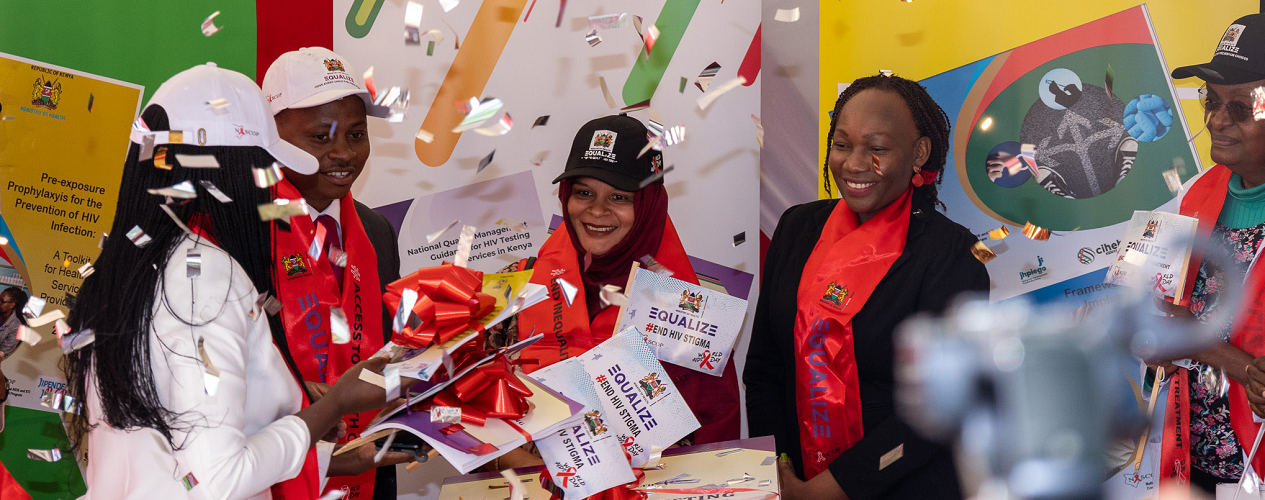
Friday, December 09, 2022
Ciheb-Kenya Joins the Globe in Commemorating the World AIDS Day 2022
Speaking during a pre-World AIDS day event in Nairobi, the Head of the National AIDS and STI Control Program (NASCOP), Dr. Rose Wafula, reiterated that the Ministry of Health, through NASCOP, commits to exploring and connecting the global and national efforts that focus on impact and progress towards the 95-95-95 targets to end the AIDS epidemic by 2030.
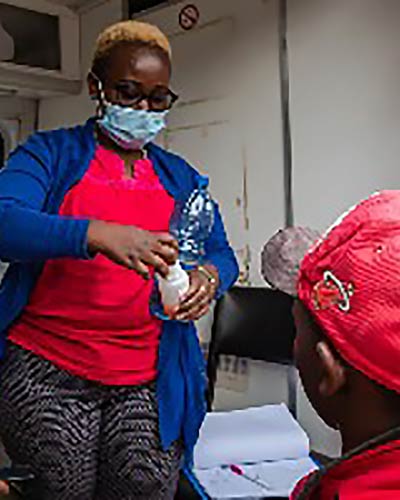
Monday, October 03, 2022
Medically Assisted Therapy Clinic in Kenya Empowers Women
In Nairobi, Ciheb’s PACT Endeleza program, with the assistance of the University of Maryland, Baltimore, and Nairobi City County, established medically assisted therapy (MAT) clinics to reduce the spread of HIV among people who inject drugs (PWID) and provide opioid substitution therapy (OST). These clinics in Mathari and Ngara were established with funding from the President’s Emergency Plan for AIDS relief through the U.S. Centers for Disease Control and Prevention.
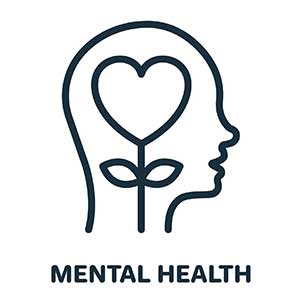
Tuesday, September 20, 2022
Caring for the Caregivers: Mental Health and Healthcare Workers in Kenya
Ciheb Kenya's CONNECT program held a two-day mental health workshop in Nairobi, Kenya. At the workshop, which was tailored for health management teams, facilitators expounded on the importance of good mental hygiene for healthcare workers.
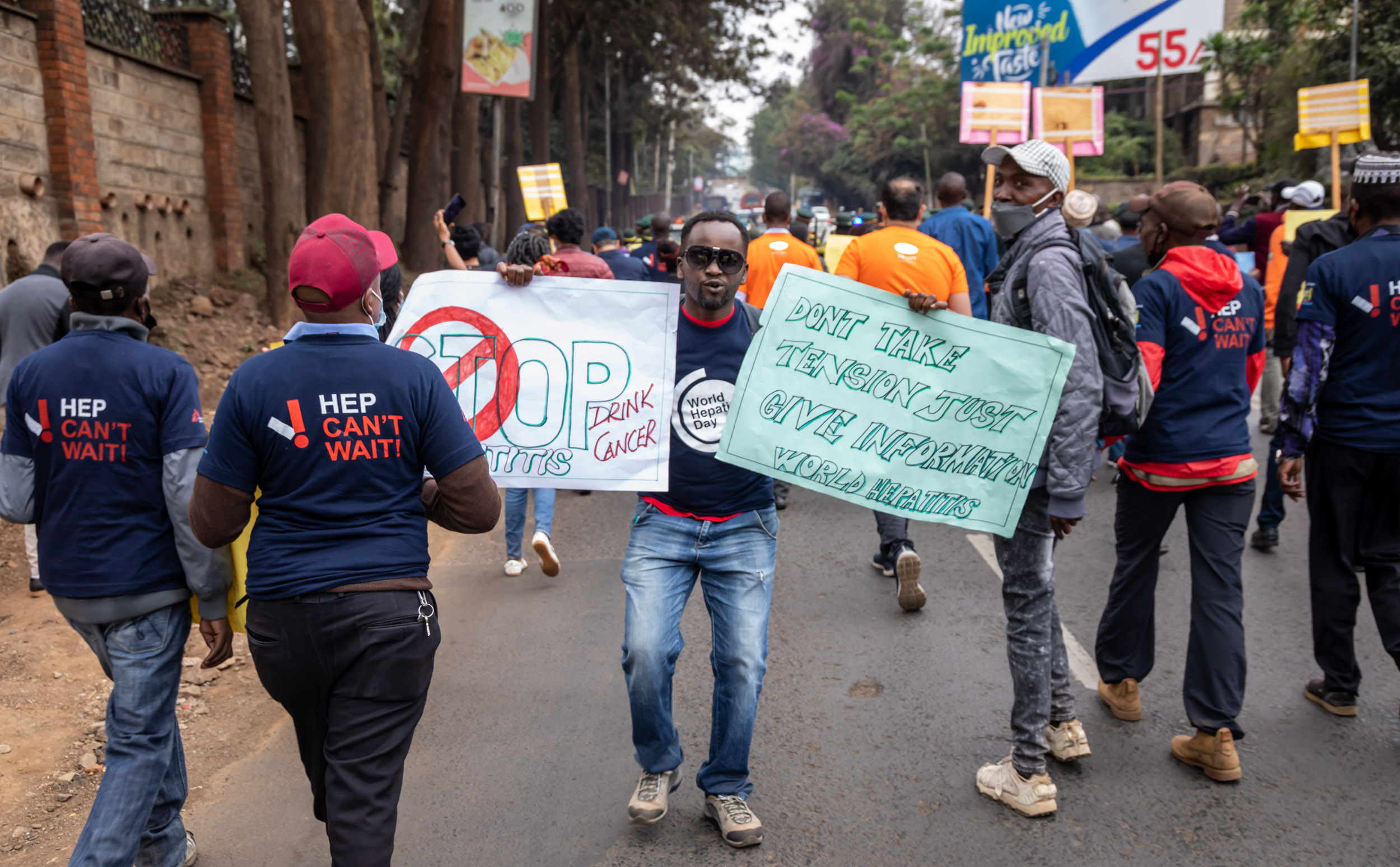
Monday, August 29, 2022
Kenya Celebrates World Hepatitis Day
Hepatitis A, B, and C are the most common of the viral hepatitis in Africa, with the African region accounting for 26% of the global burden for hepatitis B and Cin 2020.
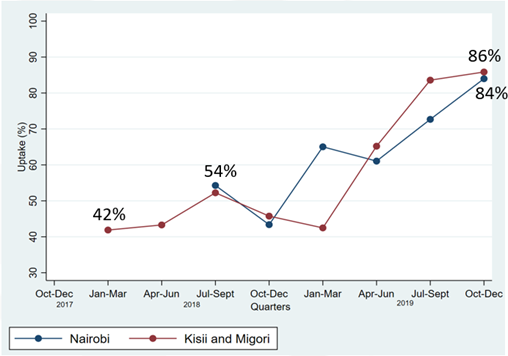
Wednesday, June 01, 2022
New Ciheb Report Compares DSD and Conventional Care
The University of Maryland, Baltimore (UMB) and Ciheb-Kenya recently released a report, “Evaluation of Differentiated Service Delivery Model,” which summarizes results, as related to DSD, from its PACT Endeleza and PACT Timiza programs in Kenya. The evaluation focused on the effect of multi-month dispensing (MMD) (three months or more) compared to conventional care.
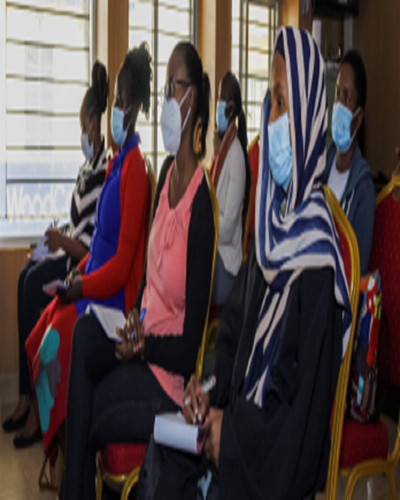
Tuesday, February 01, 2022
A Leader in Cervical Cancer Screenings
Partnership for Advanced Care and Treatment (PACT) Endeleza has supported HIV programming since 2016, but the program scope previously did not include cervical cancer screening. This changed in October 2020 when PACT Endeleza expanded its range of services to screen all women of all reproductive age groups.
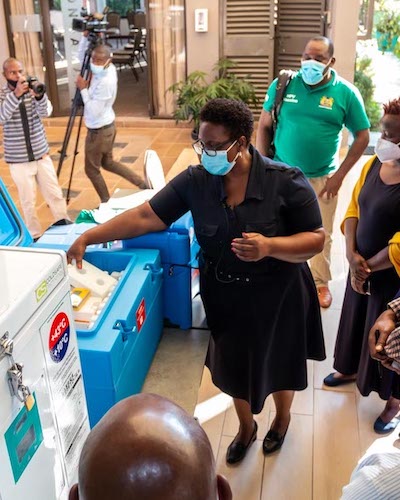
Wednesday, December 08, 2021
Supporting the Rollout of the COVID-19 Vaccine in Kenya
To combat the spread of COVID-19 in Kenya, Ciheb’s local partner, Ciheb-Kenya, received a five-year CDC-funded grant to support national and county activities towards rolling out COVID-19 vaccination. The Technical Assistance to Ready and Accelerate Capacity of public health programs in Kenya (TRACK) program is focused on supporting the development of national policies and training material on COVID-19 vaccination and teaching national trainers to cascade this training to counties.

Friday, October 29, 2021
PrEP used in the fight to end HIV in Kenya
In 2017, the Government of Kenya adopted a new policy called “A Framework for Pre-exposure Prophylaxis of IV in Kenya.” This framework directed the roll out of pre-exposure prophylaxis (PrEP) in Kenya, addressing the key focus areas of: availability, acceptability, accessibility of PrEP, and the holistic integration into the national HIV combination prevention strategy. To align with the government, Ciheb in Kenya’s PACT Endeleza program, which recently ended, also started offering PrEP that same year.
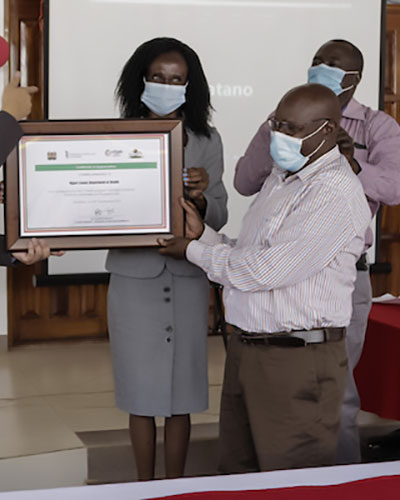
Wednesday, October 27, 2021
Kenya Country Programs Complete Five Years of Impact in HIV Services
September marked the close of Ciheb in Kenya’s two Partnership for Advanced Care and Treatment (PACT) programs, PACT Timiza and PACT Endeleza. Ciheb held closeout events in the three counties that it worked in – Kisii, Migori, and Nairobi City – to commemorate the two programs' accomplishments.
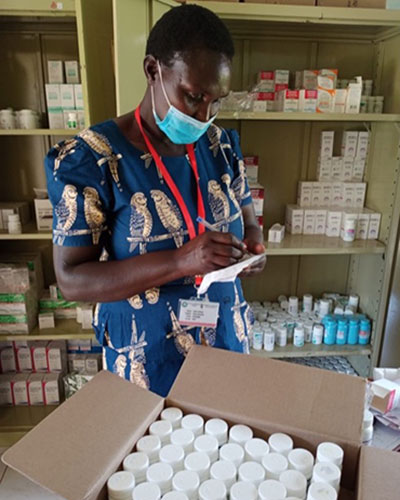
Tuesday, October 12, 2021
Differentiated Service Delivery Improves HIV Care in Western Kenya
HIV care and treatment involves complex needs and a unique set of circumstances for each client, and the conventional one-size-fits-all approach to treatment does not best serve people living with HIV (PLHIV). The client-centered approach known as differentiated service delivery (DSD) provides creative solutions to tailor clinical services to meet the needs of each client, an approach that better serves clients and the Kenyan health system.
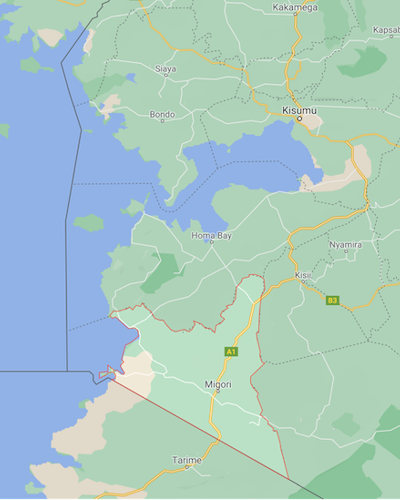
Monday, September 06, 2021
Public Health Impact through Research in HIV and TB in Western Kenya
Kenya has made remarkable strides towards reaching the UNAIDS 95-95-95 HIV targets for epidemic control, and HIV and tuberculosis (TB) services now reach a significant proportion of the Kenyan population.
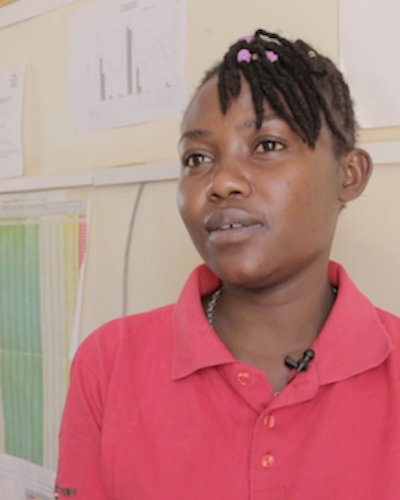
Friday, September 03, 2021
Operation Triple Zero Supports Adolescents in Overcoming HIV
HIV is a serious risk among adolescents in Kenya, and Ciheb has been helping address rising infection rates through Operation Triple Zero (OTZ). OTZ uses a contextual “asset-based approach,” whereby adolescents are considered as resources with potential answers to their challenges and are empowered to take responsibility and action for their health.
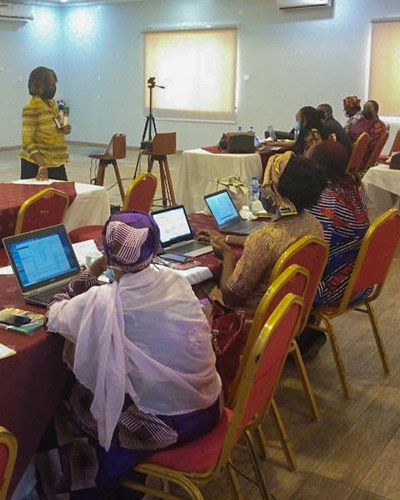
Wednesday, September 01, 2021
Data Demand and Information Use through STATA Training in Nigeria
Ciheb Nigeria, in partnership with the Federal Ministry of Health, recently facilitated a training to promote a culture of data demand among stakeholders to encourage the use of data on the National Data Repository (NDR) to track program outcomes and impact. The training also aimed to build the capacity of the stakeholders to maximize the use of data on the NDR for research.
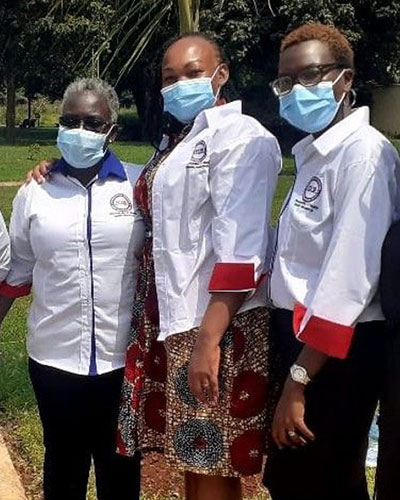
Monday, August 16, 2021
In Kenya, Ciheb Efforts Recognized in Nairobi County CQI Awards
During the summer, the Nairobi Metropolitan Services (NMS) held its annual Health Service Delivery Awards to recognize best-performing health facilities in Nairobi County. Facilities supported by PACT Endeleza won awards in all categories they participated in. NMS evaluated facilities based on their performance in continuous quality improvement metrics.
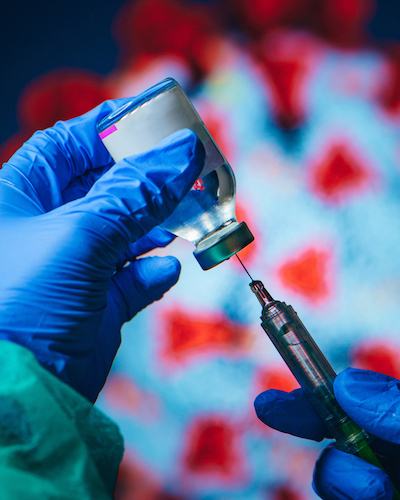
Monday, May 24, 2021
Ciheb-Kenya on the Front Lines of the COVID-19 Vaccine Rollout
Ciheb-Kenya, our local Kenyan partner, has been working with the U.S. Centers for Disease Control and Prevention, the Kenya Ministry of Health, and the National Vaccines and Immunization Programme (NVIP) to support COVID-19 vaccine preparedness through the ongoing Technical Assistance to Ready and Accelerate Capacities of Public Health Programs in Kenya (TRACK) project. Kenya received its first shipment of vaccines several weeks ago and has been moving ahead quickly. As of April 21, a total of 721,509 persons have been vaccinated against COVID-19 countrywide.

